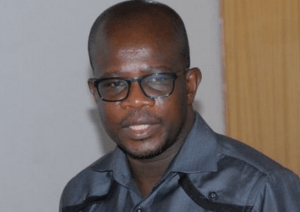Compel Dr Kpessa White to appear in court – Lawyer

A legal practitioner has prayed an Accra Fast Track High Court (Tax and Financial) Division to compel Dr Kpessa White, a former National Service Scheme (NSS) boss to appear before it to testify.
Mr Dennis Adjei Dwomoh, the counsel for Alhaji Alhassan Mohammed Imoro, a former NSS Executive Director, noted that the various adjournments had been at the convenience of Dr White.
“I wish the witness should be compelled to come to court because he knows what his absence means,” he said.
According to Mr Dwomoh, the Court had the power to compel him to appear before it, saying, “If the court exercises that power, he would not take all of us for a ride.”
Prosecuting, Mrs Marina Appiah-Opare, Chief State Attorney, said Dr White had informed her that he (White) had taken up an international appointment outside the jurisdiction of Ghana so he would be available after January 27.
The matter was, therefore, adjourned to January 27.
Alhaji Imoro, former NSS Executive Director and 34 others have been put before the Court for conspiracy to commit crime, giving bribe to influence a public officer, and stealing.
They have all pleaded not guilty to the charge of stealing more than GH¢107.8 million belonging to the State through the payment of ghost or non-existing service personnel.
They have been granted bail in the sum of various amounts, ranging from GH¢30,000 to GH¢5 million by the court.
The facts of the case as have been presented to the Court by the State, are that, in July 2015, the Bureau of National Investigations (BNI) began a nation-wide investigation into the operations of the NSS, with regard to the payment of monthly allowances to service persons.
The Chief State Attorney said this was after a report received by the BNI indicated malfeasance in the postings and payment of allowances to service personnel.
She said investigations revealed that between September 2013 and August 2014, the pay roll of the NSS was bloated with 31,516 names for both the National Service postings and the National Voluntary Service recruitment.
She told the court that during that service year, National Service Persons were paid GH¢243.00 per month as allowance from September to December 2013, and GH¢350 per month from January to August 2014.
The State said an elaborate ploy was hatched by Alhaji Imoro, the NSS Executive Director, supported by senior officers of the Scheme at the National Secretariat.
The ploy also included all the Regional Directors of the Scheme, and was implemented by the District Directors involved in the generation of “ghost” names at the Head Office.
These ghost names were added to the genuine ones on the nominal rolls, based on which payment vouchers were prepared.
The payment vouchers were prepared by the Chief Accountant, Nelson Ayeltiga and passed on to the Internal Audit.
“The internal Auditor, Gloria Aku Mensah, whose duty it was to audit and vet all the accounts and payment vouchers, did not audit the accounts and the payment vouchers, and yet passed them on,” she said.
“Ayeltiga and Mensah received regular payments from some Regional Directors.”
She indicated that the “ghost” names, which were detected in all the districts in the country, were mostly posted to the rural areas, and in some cases to non-existing institutions and departments.
The names of personnel posted to self-accounting public and private institutions were converted to and retained on the Government pay roll without effecting the required amendment with the consultant to the Scheme.
The State held that that the Executive Director had dealings with his Regional Directors, and they with the district counterparts, who directly worked under them.
The Executive Director, the State said, never dealt directly with the District Directors.
“The “ghost” names were sent by the Executive Director to the Regional Directors with firm instructions as to how much he was to receive every month,” she said.
“The number of names the Executive Director gave to each regional director depended on the trust and loyalty he had developed with each Regional Director”.
The State said on receipt of the “ghost “names and the instructions thereof, the Regional Director in turn passed the “names” to his district Directors with his set of instructions as to how much the District Director was to retain every month and how much was to be sent to him.
The amount of money the Regional Directors sent to the Executive Director depended on the number of names he got from him and the accompanying instruction, she said.
The “ghost” names the Executive Director sent to the Regional Directors were not given to them at a go, she explained.
The Executive Director started giving out the names from September 2013 shortly after the postings, she said.
The names then started increasing from October through to January 2014 when the postings stabilised and no more names were given, the prosecutor said.
She told the Court that, in addition, all the Senior Officials at the National Service Secretariat, who were implicated in the fraud also had their own separate deals with the Regional Directors, independent of one another, and they had confessed to having each received regularly every month, several thousands of Ghana Cedis from the Regional Directors.
The Regional Directors had also admitted having made regular payments to them, she said.
Source: GNA
